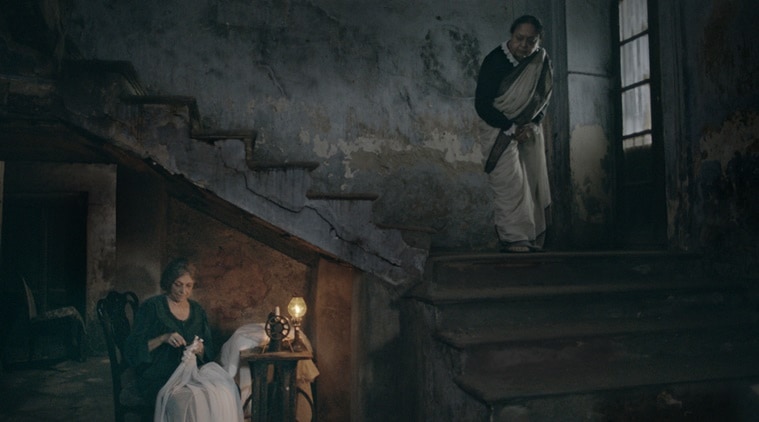
Oranges fall in the corridor, one after the other, in a curious symmetry. A little girl walking through it, and hearing them fall, turns back to pick them up. It is still raining oranges when she decides to walk away, her hands full.
The bittersweet fruit serves as love letters in Aditya Vikram Sengupta’s Jonaki. Lovers meet and feed it to each other during their secret rendezvous. The ochre-tinted peels — let out to dry — resemble the worn out edges of notes they had written in isolation to each other. The act of collecting oranges then becomes almost akin to collecting the scattered pages of those letters till one can hold no more.
Sengupta’s sophomore film unfolds like a dream, a comparison that is indicative of the stunning imagery he conjures on screen. It was his grandmother’s life — married at 16 and then later stuck in an unfulfilling relationship— that inspired the film. “The spirit of the film is based on my grandmother, and in many ways, it is an extension of the stories she would tell me,” Sengupta says over the phone. He dreamt of her for days after she passed away, graphic images that he admits were “very painful”.
Jonaki marks Sengupta’s attempt at re-creating this world he had heard of. The fragmentary nature of recollections is reflective in the wobbly gait of Jonaki’s father, in the wounded, unsatiated desires of her neglected mother, and in the wrinkled skin of the 19-year-old Jonaki (played by the late Lolita Chatterjee). Scenes succeed one another without a linear progression as stories heard by Sengupta and the way he remembers them collide.
Words are sparsely spoken in this film. The frame, dipped in moss, specify no time or space but serve as foreboding of the doomed story he chooses to narrate, one that reeks of unfulfillment in all quarters — love, wishes and desires. Chatterjee, who plays the 19-year-old Jonaki, disregards her mother’s disapproval, and meets her Christian lover in secret. Later when caught, she is scolded by her mother while being wiped clean after a bath, an act meted out to an infant– betraying both the physical age of the actor and the age of her character.
Such a flamboyant treatment of time is not only inspiring but aids the narrative in curious, twisted ways. The approach, so reminiscent of Luis Buñuel’s films, is surreal and lends much ingenuity to this meditative film. Sengupta fills in the details, the way he remembers them and that involves seeing his grandmother, old and jaded, as a 19-year-old, with the world collapsing and aging around her. He falls back on nostalgia without indulging in its selective, comforting nature. If in his first film he dwelled on the labour of love and how it sustains the absence of physical proximity of lovers, Sengupta, this time around, shows what the absence of love can do. It can wreck.
Jonaki is a personal story, private even, and the director is uncompromising in his storytelling, unrelenting in his choices and intrepid in the employment of metaphors.
As cliche as it might sound, Jonaki needs to be seen to be experienced. With this, the director traces back to what perhaps is the primary preoccupation of films: to tell a story through moving images. This is his labour of love and he entreats the audience to surrender to his vision. Give in.